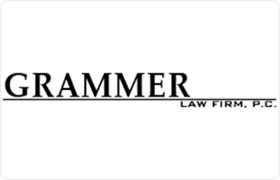Lake City RICO Act Lawyer, South Carolina
Sponsored Law Firm
-
 x
x

Click For More Info:
-
Grammer Law Firm, P.C.
1700 Oak St Conway, SC 29526» view mapCriminal Proudly Serving Horry County
You need an attorney with criminal defense knowledge who will vigorously protect your rights and interests.
800-957-8401
Not enough matches for Lake City RICO Act lawyer.
Below are all Lake City Criminal lawyers.
John M Ervin III
✓ VERIFIEDCriminal, Litigation
John Ervin began his legal career as a law clerk to Circuit Judge Sydney Floyd in 1985. He returned to Columbia, SC and began prosecuting drug cases a... (more)
Daniel Alan Hunnicutt
Workers' Compensation, Criminal, Personal Injury, Accident & Injury
Status: In Good Standing
FREE CONSULTATION
CONTACTFREE CONSULTATION
CONTACTFrederick A. Hoefer
Commercial Real Estate, Family Law, Criminal, Personal Injury
Status: In Good Standing
J. Thomas McBratney
Criminal, Personal Injury, Family Law
Status: In Good Standing Licensed: 51 Years
Preston B. Dawkins
Litigation, Criminal, Insurance, Personal Injury
Status: In Good Standing Licensed: 20 Years
Reynolds Williams
Litigation, Federal Appellate Practice, Criminal, Personal Injury
Status: In Good Standing
 William Grammer Myrtle Beach, SC
William Grammer Myrtle Beach, SC AboutGrammer Law Firm, P.C.
AboutGrammer Law Firm, P.C. Practice AreasExpertise
Practice AreasExpertise

